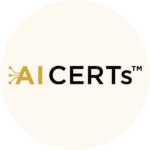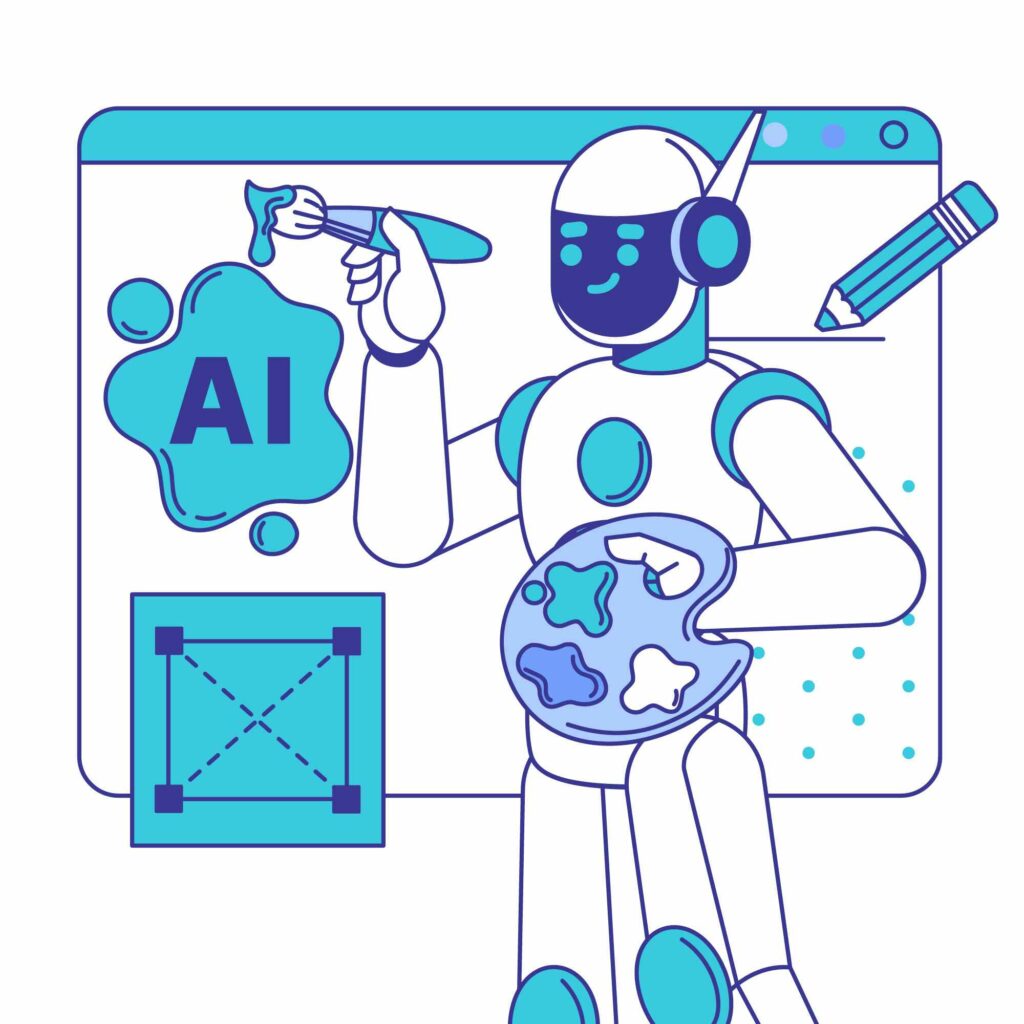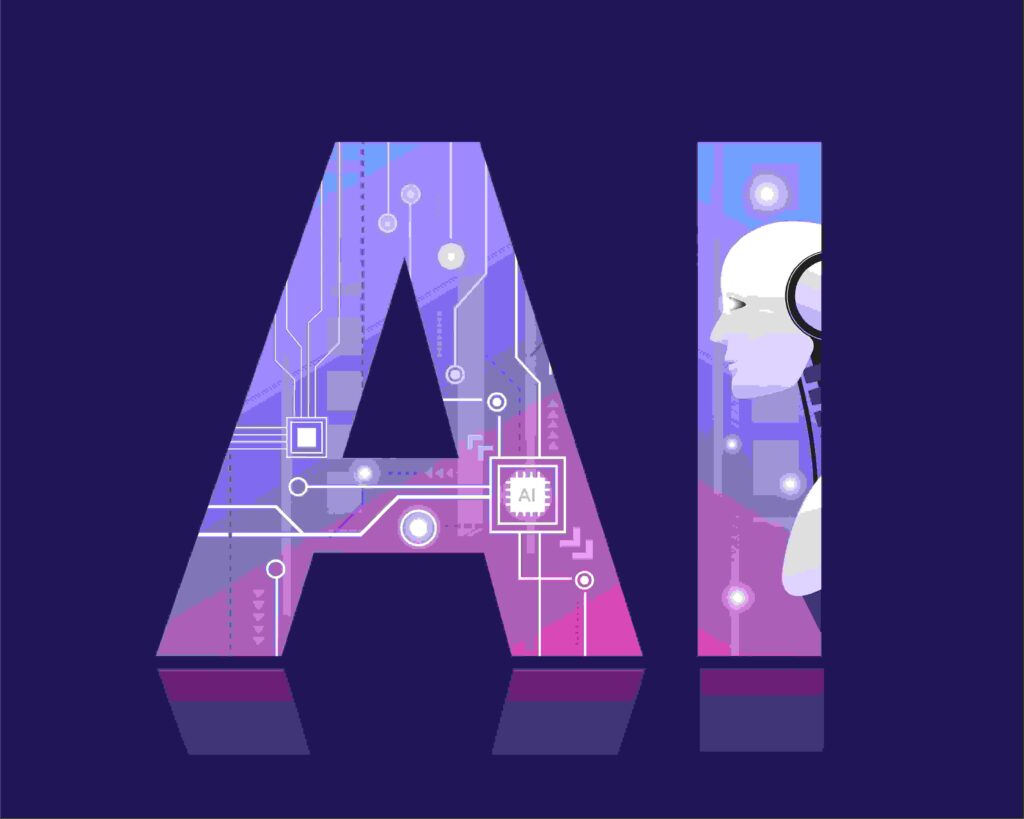
AI CERTS
5 months ago
AI-Driven Design Certification: Transforming Creative Processes with Artificial Intelligence
In today’s digital age, AI-driven design is revolutionizing the creative industry by enabling designers to streamline workflows, enhance efficiency, and push the boundaries of innovation. From automating repetitive tasks to generating creative concepts, AI has become an indispensable tool for professionals in design and user experience (UX). To harness the full potential of these technologies, professionals are seeking AI-driven design certifications, which provide the knowledge and skills to effectively integrate AI into the design process.
Introduction
In today's fast-evolving digital landscape, creativity and technology are merging like never before. AI-Driven Design Certification is becoming essential for professionals looking to enhance their creative skills using artificial intelligence. This certification equips designers, marketers, and innovators with the knowledge to leverage AI tools for automation, enhanced creativity, and data-driven decision-making. From generating stunning visuals to optimizing user experiences, AI is transforming the way designs are conceptualized and executed. Enrolling in an AI-Driven Design Certification program can help individuals stay ahead in the competitive creative industry by mastering AI-powered design solutions.
This article explores the significance of AI in design, the skills offered by AI-driven design certifications, practical applications, and how such certifications can transform careers in the design industry.

The Role of AI in Modern Design learning with AI-Driven Design Certification
Artificial Intelligence is reshaping the design landscape, allowing professionals to work faster, smarter, and more creatively. AI tools can analyze large datasets to provide insights into user behavior, create design elements based on predefined styles, and even suggest layouts or color schemes. For designers, these capabilities save time and enhance creativity, making AI an essential skill for staying competitive in the field.
Some key areas where AI is making a significant impact include:
- Automated Design Generation: AI tools like Adobe Sensei and Canva can generate layouts, logos, and marketing materials with minimal input, reducing time spent on repetitive tasks.
- User-Centered Design: AI algorithms analyze user data to optimize designs for specific audiences, improving usability and engagement.
- Predictive Analytics: AI can predict design trends and user preferences, helping professionals create designs that resonate with their target audience.
External Resource: Learn more about AI The Rise Of Generative AI In Design: Innovations And Challenges
Key Skills Covered in an AI-Driven Design Certification
An AI-driven design certification equips professionals with both technical and creative skills, allowing them to harness the power of AI in their design workflows. Here are some core competencies typically included:
1. Understanding AI for Design
Professionals learn the basics of AI, including machine learning, computer vision, and generative design. These foundational concepts help designers understand how AI tools work and how to integrate them into creative processes.
2. Data-Driven Decision Making
Data analytics is a critical skill in AI-driven design. Certification programs teach designers how to use AI tools to analyze user data, identify trends, and make data-informed decisions that enhance user experience.
3. Generative Design and AI Creativity
Generative design leverages AI to explore multiple design options based on specific constraints and goals. Designers learn to use AI tools like Autodesk’s Dreamcatcher to automate this process, opening new possibilities for innovation.
4. AI Tools and Platforms
Certifications cover practical training on popular AI-powered design tools such as Adobe Sensei, Canva, and Figma. Participants learn how to use these platforms to optimize workflows, create assets, and collaborate effectively.
5. Ethics in AI Design
Ethical considerations are essential in AI-driven design. Certifications address topics such as avoiding bias in AI-generated designs, ensuring accessibility, and maintaining user privacy when leveraging AI for data-driven insights.
Real-World Applications of AI in Design learning with AI-Driven Design Certification
AI-driven design skills have numerous applications across industries, from marketing and advertising to web development and product design. Here are some examples of how AI is transforming the design field:
1. UX Design and Prototyping
AI-powered UX design tools like Figma and Sketch enable designers to create prototypes quickly, test usability, and refine user interfaces based on real-time feedback. These tools often include AI-powered suggestions to improve design efficiency.
2. Personalized Marketing Campaigns
AI-driven design tools help marketers create personalized campaigns by analyzing customer data and suggesting relevant visuals, copy, and layouts. This ensures that marketing materials resonate with specific audiences, improving engagement and conversion rates.
3. Web Design Optimization
AI can optimize web designs for performance and user experience by analyzing visitor behavior and suggesting adjustments to layouts, navigation, and content placement. Tools like Wix ADI use AI to build websites tailored to user preferences.
Related Reading: For more on AI’s applications in marketing design, read HubSpot’s guide to AI in digital marketing.

Benefits of an AI-Driven Design Certification
AI-driven design certifications provide significant benefits for both professionals and organizations, making them a valuable investment in today’s digital landscape. Here’s why they matter:
1. Enhanced Efficiency and Productivity by AI-Driven Design Certification
By automating repetitive tasks, AI frees up time for designers to focus on creative problem-solving. Certification programs teach professionals how to maximize efficiency with AI tools, enabling them to deliver high-quality work faster.
2. Improved Design Quality by AI-Driven Design Certification
AI tools enhance design precision by offering data-driven suggestions, generating design variations, and analyzing user feedback. With these capabilities, designers can create more impactful and user-centered designs.
3. Staying Competitive in the Industry by AI-Driven Design Certification
As AI becomes integral to the design industry, professionals with AI-driven design certifications are better positioned to secure high-demand roles. These certifications signal expertise in cutting-edge tools and techniques, making candidates more attractive to employers.
4. Cross-Industry Applications by AI-Driven Design Certification
AI-driven design skills are valuable across industries, from tech and e-commerce to healthcare and education. Professionals can apply these skills to a wide range of projects, increasing their versatility and career opportunities.
Challenges and Ethical Considerations in AI-Driven Design learning with AI-Driven Design Certification
While AI-driven design offers numerous advantages, it also presents challenges that designers must navigate:
1. Bias in AI Algorithms
AI tools can inadvertently perpetuate bias if trained on biased datasets. Designers must ensure that their AI tools generate inclusive and fair designs by carefully evaluating data inputs and outputs.
2. Balancing Creativity and Automation
While AI automates many aspects of design, maintaining the human touch in creative projects is essential. Designers must learn to balance automation with creativity to ensure that designs remain authentic and meaningful.
3. Data Privacy and Security
Using AI in design often involves analyzing user data. Ensuring compliance with data privacy regulations, such as GDPR, is crucial to maintaining trust and protecting sensitive information.
4. Adapting to Rapid Technological Changes
AI tools evolve quickly, and staying updated with the latest technologies is challenging. AI-driven design certifications emphasize continuous learning, preparing professionals to adapt to new tools and trends as they emerge.
The Future of AI-Driven Design learning with AI-Driven Design Certification
The integration of AI in design is expected to grow, introducing new tools and possibilities for creative professionals. Future trends in AI-driven design include:
- AI-Generated Art and Animation: AI will continue to advance in generating high-quality artwork and animations, enabling designers to create more dynamic content.
- Adaptive Design Systems: AI tools will offer real-time adjustments to designs based on user interactions, improving usability and engagement.
- Collaborative AI Tools: AI will enhance collaboration by integrating with team platforms, enabling seamless sharing of design insights and iterations.
For professionals, investing in AI-driven design certification ensures they remain at the forefront of these innovations, equipped with the skills to thrive in an AI-enhanced creative industry.
We can also do AI+ Design™ and AI+ UX Designer™ certification course in reputed company like AICERTs.Use the coupon code NEWCOURSE25 to get 25% OFF on AI CERTS' certifications. Don't miss out on this limited-time offer! Visit this links to explore these certification and enroll today.